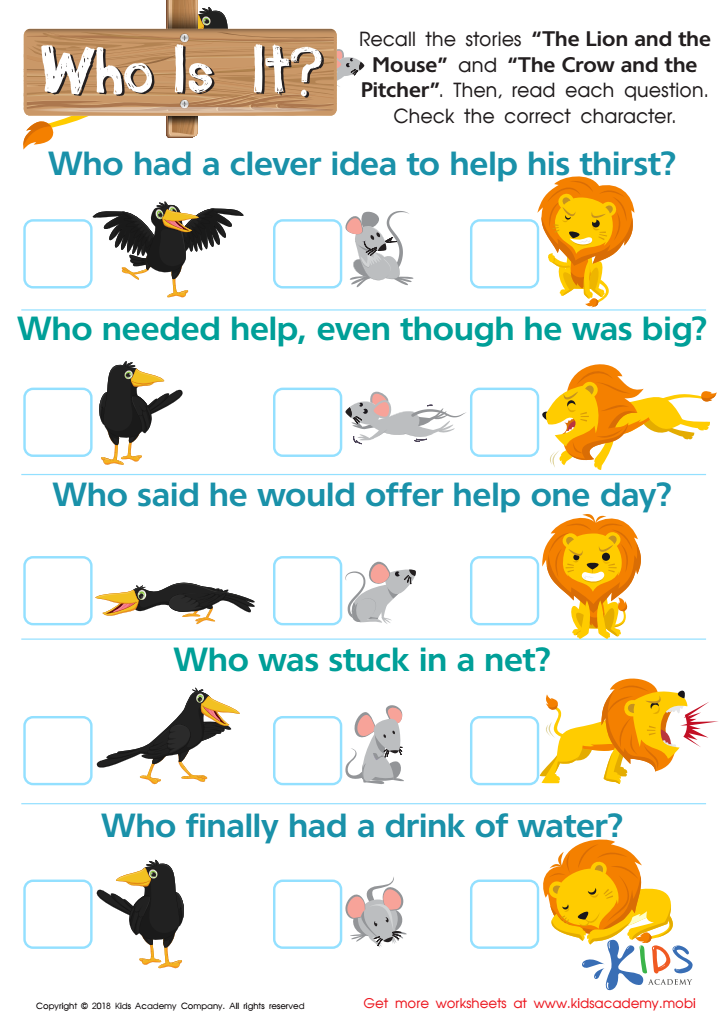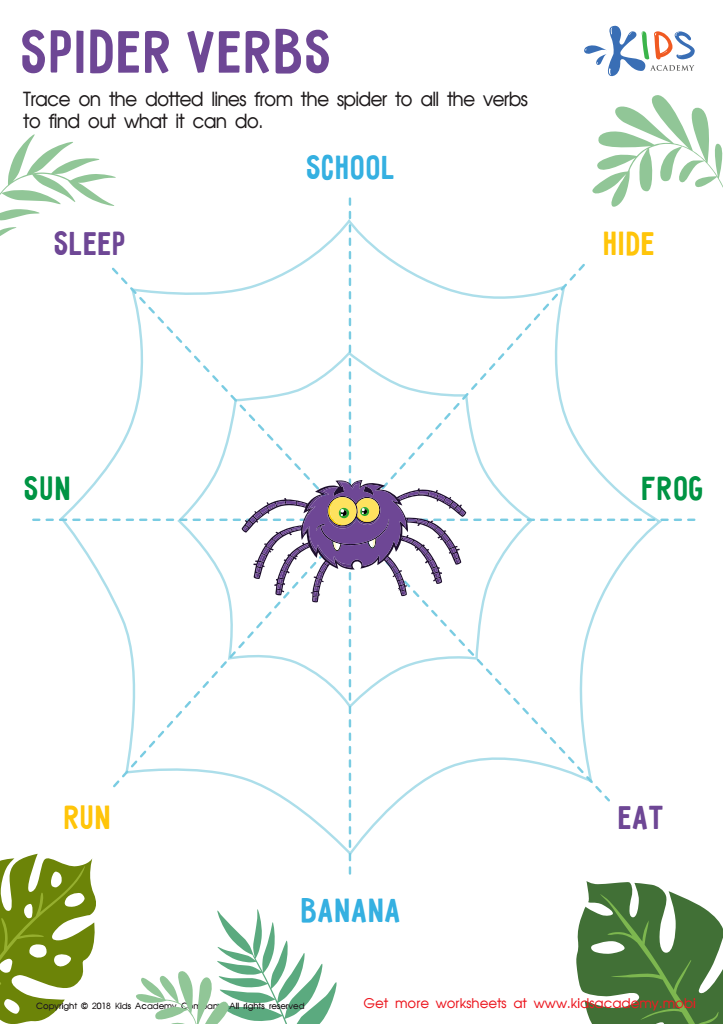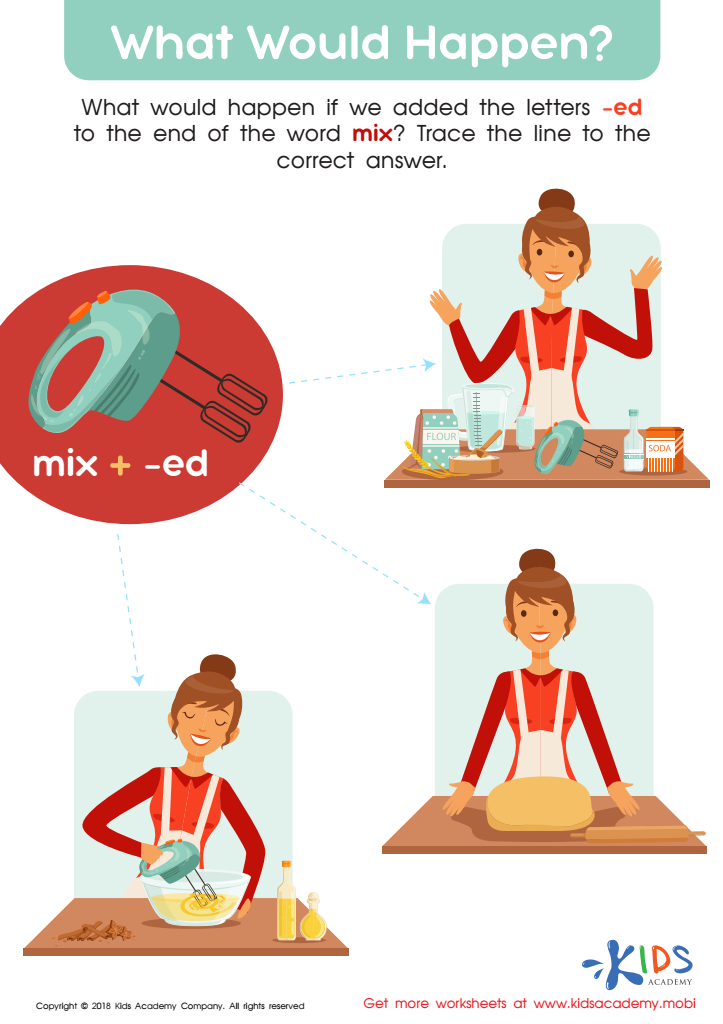Logical thinking Writing Worksheets for Ages 6-7
3 filtered results
-
From - To
Enhance your child's writing skills with our engaging Logical Thinking Writing Worksheets designed specifically for ages 6-7. These worksheets promote critical thinking through fun and interactive activities that spark creativity while developing logical reasoning. With activities that encourage students to organize their thoughts and make decisions, your child will learn to express ideas clearly and coherently. Our thoughtfully crafted exercises cater to early learners, making complex concepts accessible and enjoyable. Perfect for both classroom use and at-home practice, these worksheets provide a solid foundation for writing success. Inspire your little one to think critically and write confidently today!


Who Is It? Worksheet


Spider Verbs Worksheet


What Would Happen? Worksheet
Logical thinking writing for children ages 6-7 is essential for their cognitive and linguistic development. At this age, children begin to express their thoughts and ideas more coherently, and fostering logical thinking through writing enhances their critical thinking skills. When parents or teachers encourage logical writing, they help children learn to organize their thoughts, understand cause and effect, and make connections between ideas.
Moreover, developing logical reasoning skills through writing helps children communicate more effectively. They learn to construct well-structured arguments, use appropriate evidence, and present their ideas clearly, which boosts their confidence in both verbal and written expression. This skill set is vital not only for academic success but also for everyday decision-making.
Encouraging logical thinking writing also promotes creativity and problem-solving abilities. Children learn to approach problems systematically, evaluate different situations, and consider multiple perspectives. This induces a growth mindset, making them more resilient when facing challenges.
Ultimately, prioritizing logical thinking writing fosters overall cognitive development, preparing children for future academic endeavors and nurturing responsible, informed citizens. By supporting logical writing early on, parents and teachers empower children with the foundational skills necessary for lifelong learning and effective communication.

 Assign to My Students
Assign to My Students
















